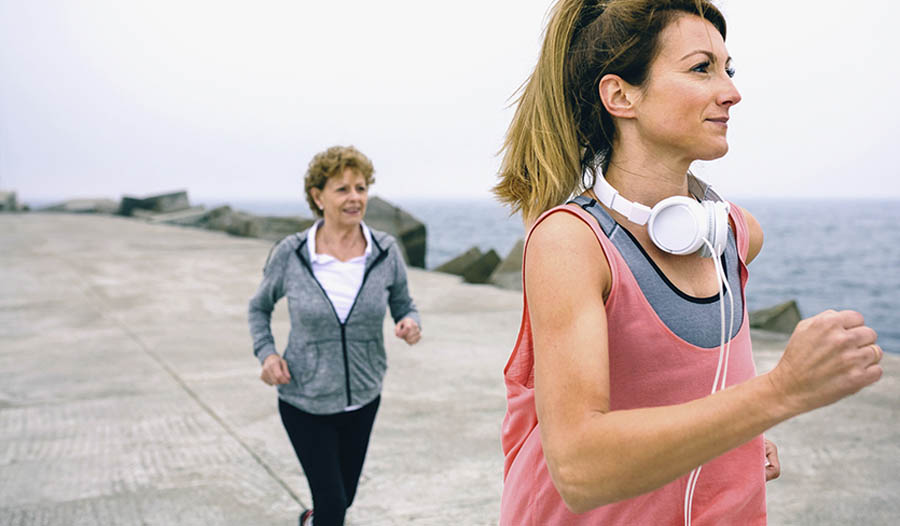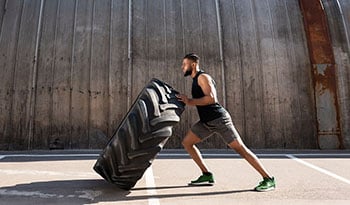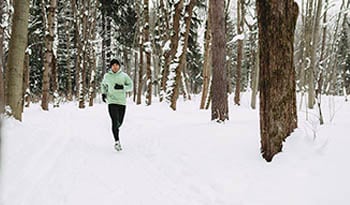Exercising Contributes to a Longer Life
ВІДМОВА ВІД ВІДПОВІДАЛЬНОСТІ:Цей блог не призначений для встановлення діагнозу...

There are plenty of creams and capsules that can help with a youthful appearance on the outside. But to become younger on the inside, research suggests that it’s time to break a sweat.
Several studies show that people who exercise at a high level on a regular basis are able to actually slow down aging at a cellular level. How? By producing longer telomeres.
Telomeres are the end caps of chromosomes. They’re designed to protect our DNA, similar to how plastic caps keep shoelaces from fraying. But every time a cell replicates, it loses a little bit of its telomere. The older we get, the more times our cells replicate, which is why telomere length is directly associated with aging.
Inflammation and oxidative stress are also thought to shorten telomeres. Researchers think that’s why anti-inflammatory diets, stress management, and exercise can slow telomere erosion. But not just any type of exercise. Three studies have found that high-intensity exercise, like jogging at least three hours a week, is the key.
A new Brigham Young University study of nearly 6,000 adults found that women who ran 30 minutes a day, five times a week, and men who ran 40 minutes a day, five times a week, protected their telomeres so much that their average biological age was nine years younger than people who didn’t exercise at all. People who exercised less intensely also got some telomere advantages, but not nearly as much. Their biological age was two years younger than their couch-potato counterparts.
A 2012 study conducted by researchers from Seoul’s Chung-Ang University Medical Center analyzed the exercise habits of 44 postmenopausal women. Those who did aerobic and resistance exercise for at least an hour, three or more times a week, had significantly longer telomeres than the sedentary women.
And a 2008 Kings College London study of 2,400 twins found that exercise can even override genetics when it comes to telomere length. The researchers found that the more active one twin was, the longer his or her telomeres were.
Also, for additional support, consider adding sports nutrition products to your fitness routine with the advice of your doctor or personal trainer. Products to look into include pre-workout and recovery formulas, protein products to enhance your workout and other popular supplements like creatine and l-carnitine. There are even women’s sports products that are available.
Bottom line: To look and feel younger, hit the gym or the track on a regular basis.




